When I first considered installing grey quartz countertops in my bathroom, I wasn’t fully aware of all the benefits and the aesthetic value they would bring. Over the years, I’ve come to realize just how transformative they can be, not just in terms of appearance but also in practicality. Grey quartz countertops have become increasingly popular due to their modern yet timeless appeal. The neutrality of grey allows it to blend seamlessly with various design schemes, making it a versatile choice for different tastes and preferences.
What initially drew me to grey quartz countertops was their sleek, polished look. I’ve always been partial to a clean and minimalist style, and grey quartz exudes exactly that. The various shades of grey available – from lighter hues with specks of white to darker, almost charcoal tones – allowed me to tailor the countertop to the existing theme of my bathroom. The color isn’t just about aesthetics; it has a calming, subdued quality that helps create a serene atmosphere, which is ideal for a space like the bathroom.
Another reason I chose quartz is its durability. Bathrooms see a lot of traffic, and the countertops need to withstand frequent use. Quartz, being a man-made stone, is designed to be more resilient than natural stones like marble or granite. I’ve found that it resists scratches, stains, and even moisture better, which is crucial in a bathroom setting where exposure to water is constant. The non-porous nature of quartz means that it doesn’t absorb liquids easily, making it less prone to bacteria buildup, which is essential for maintaining cleanliness and hygiene.
Over time, I’ve also come to appreciate how low-maintenance grey quartz countertops are. Unlike marble, which requires regular sealing to prevent stains, quartz doesn’t need any ongoing treatment beyond regular cleaning. I typically just wipe it down with a mild detergent and water, and it stays looking as good as new. I never have to worry about sealing or applying protective coatings, which not only saves me time but also money in the long run. The practicality of this stone makes it a great choice for anyone who, like me, values simplicity in home maintenance.
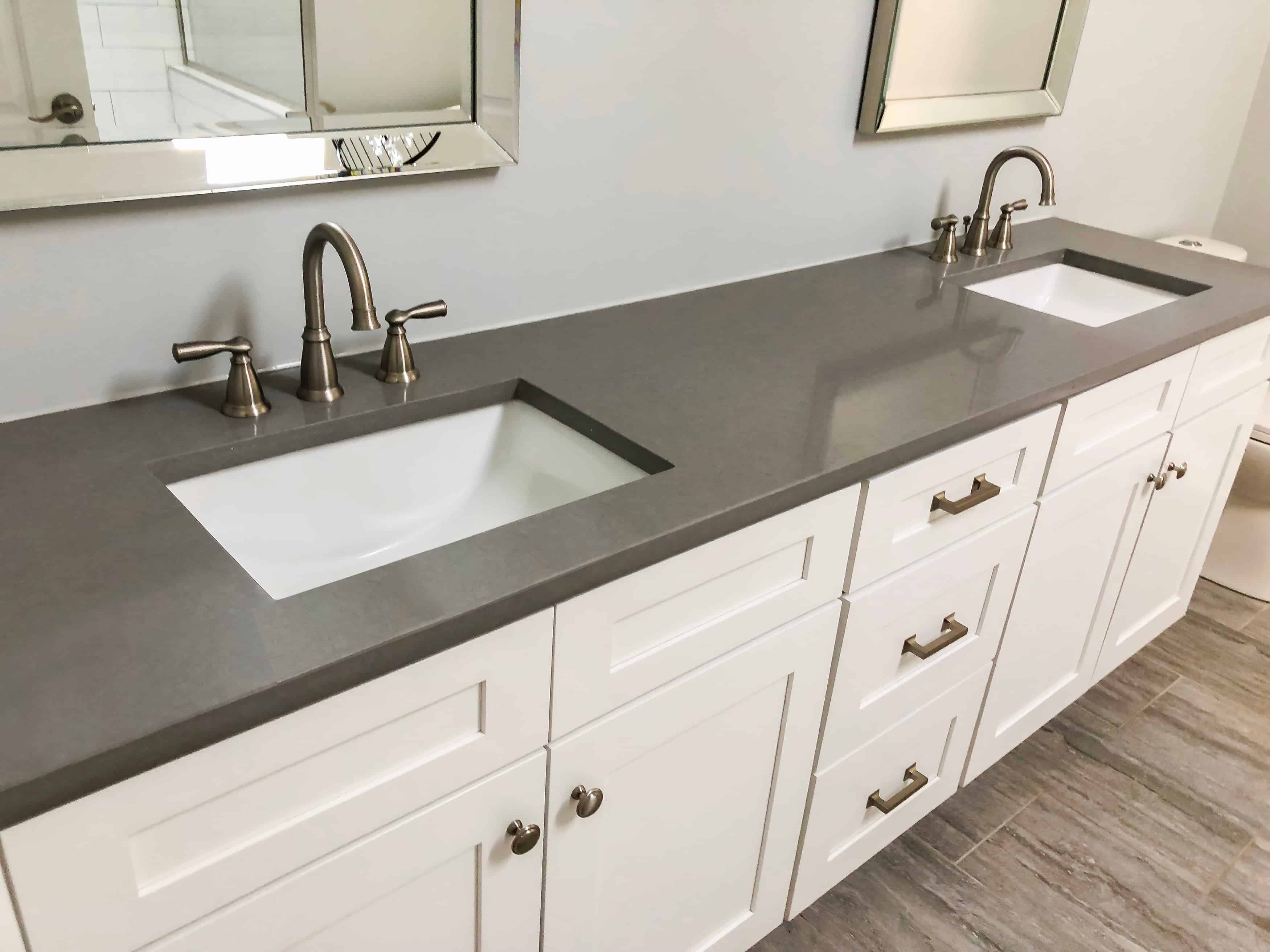
There’s something to be said about the way grey quartz countertops can tie a room together. In my bathroom, for example, the grey countertop complements my white subway tiles and chrome fixtures. It serves as a perfect neutral base that lets other elements in the room shine while still holding its own as a sophisticated feature. Grey doesn’t overpower a space, which is why it’s so popular in contemporary designs. It’s subtle but elegant, allowing the bathroom to feel both modern and timeless.
One of the aspects of grey quartz countertops that I’ve come to appreciate more over time is the wide variety of patterns available. When I first started my search, I was under the impression that quartz was mostly uniform in appearance. However, I soon discovered that manufacturers offer a vast array of veining, speckling, and marbling effects, allowing me to choose a design that mimicked the look of natural stone like marble or granite, without the high maintenance. This opened up a whole new world of possibilities for customizing the look and feel of the bathroom.
In terms of sustainability, I was pleasantly surprised to learn that quartz is an environmentally friendly option. Quartz countertops are made from a combination of natural quartz and resin, and many manufacturers prioritize sustainable production processes. Some even use recycled materials, which makes quartz a great choice if you’re conscious about reducing your environmental footprint. This aspect made me feel even better about my decision to choose quartz over other materials like granite or marble, which can be more resource-intensive to mine and process.
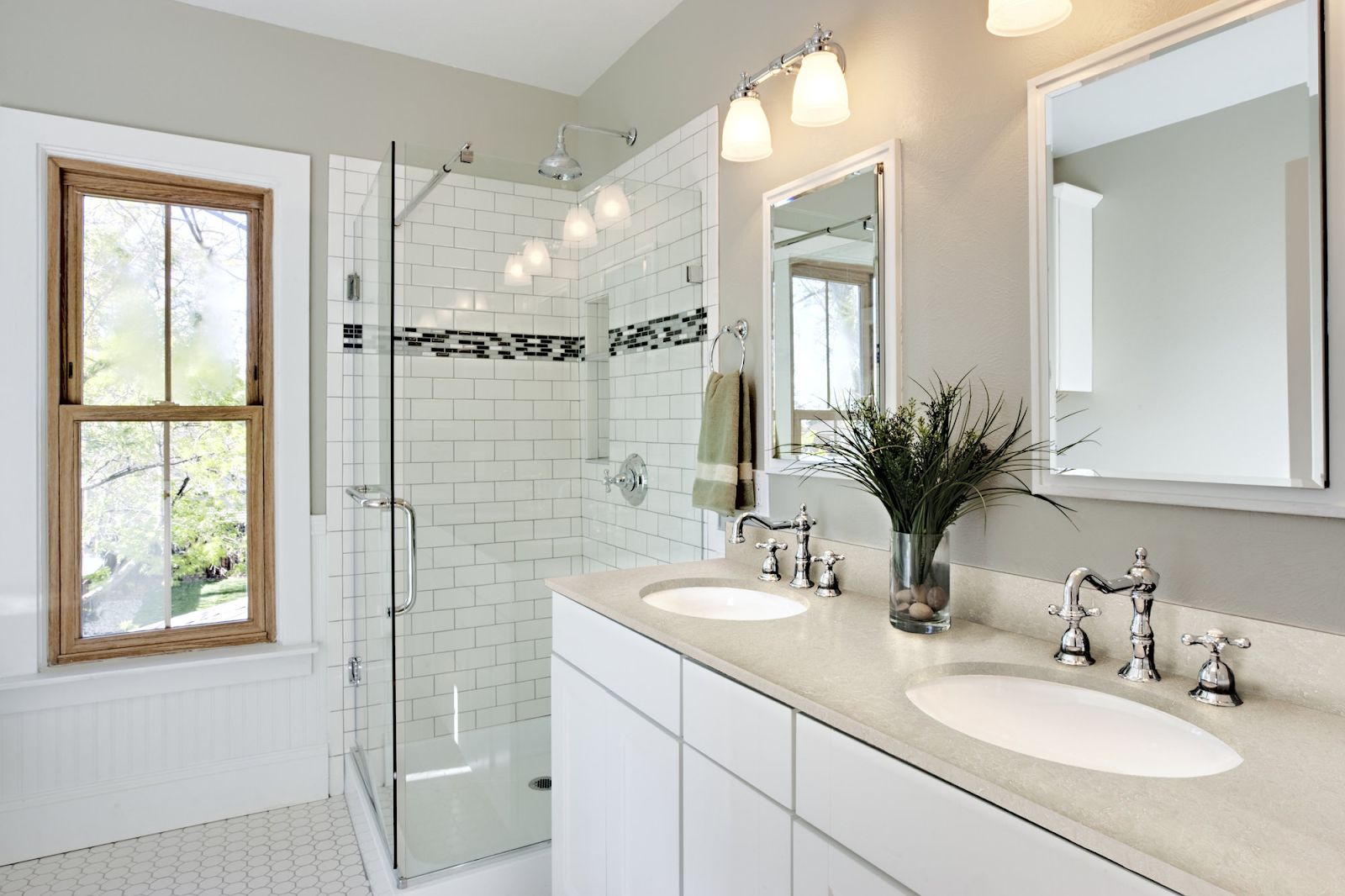
From a cost perspective, grey quartz countertops fall somewhere in the mid-to-high range. While they may not be the cheapest option on the market, I’ve found that they offer excellent value for the money. Considering their durability, low maintenance, and long lifespan, I believe they’re a smart investment for any bathroom. I didn’t have to worry about them chipping or cracking as other stones might, which gave me peace of mind knowing I wouldn’t be facing expensive repairs or replacements down the road.
Quartz also has the added advantage of being heat-resistant, which I’ve found to be particularly useful in a bathroom setting. While I don’t place hot curling irons directly on the countertop, it’s nice to know that if I ever accidentally did, the surface wouldn’t be damaged. This kind of peace of mind is invaluable, especially in a space like the bathroom where heat exposure can be common.
One thing that surprised me about grey quartz is how well it works in small bathrooms. The reflective quality of the quartz can help bounce light around the room, making smaller spaces feel brighter and more open. In my case, my bathroom is on the smaller side, but the quartz countertop helps to create the illusion of more space, making it feel airier and more inviting. It’s a small detail, but one that has made a big difference in how I experience the room daily.
While I initially chose grey quartz for its aesthetic and practical qualities, I’ve come to realize that it also enhances the resale value of my home. Bathrooms and kitchens are two of the most important areas that potential buyers look at, and having high-quality, stylish countertops like grey quartz can make a significant impact on their perception of the home. It’s an upgrade that doesn’t just benefit me now, but also positions my home as more attractive on the market.
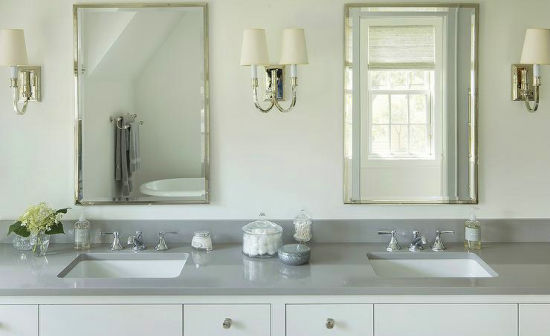
What I love most about my grey quartz countertop is how it blends effortlessly with the changing trends. Over the years, I’ve switched out the color of my towels, rugs, and even light fixtures, but the countertop has remained a constant, timeless feature. Grey is such a versatile color that it never feels outdated or out of place, regardless of how I decide to update the rest of the bathroom. This versatility makes grey quartz a truly enduring choice for any homeowner looking to future-proof their design.
In terms of installation, I found that working with quartz was relatively straightforward. I hired a professional, as I would recommend for anyone considering installing quartz, especially in a bathroom where precise measurements and cuts are essential. The installation process was smooth, and the final result was flawless, with no visible seams or imperfections. Quartz’s engineered composition allows for more consistent quality control compared to natural stone, so I wasn’t worried about flaws or irregularities in the material.
After several years of use, my grey quartz countertop still looks as good as the day it was installed. The resilience of quartz continues to impress me, and it has proven to be an excellent choice for handling the daily wear and tear of a bathroom environment. Despite constant exposure to water, soap, and other bathroom products, the countertop remains stain-free and gleaming. I truly believe quartz is one of the most reliable and aesthetically pleasing options for a bathroom countertop.
Now, having lived with grey quartz countertops for some time, I can say with confidence that they’re a fantastic choice for anyone looking to combine durability, style, and ease of maintenance. The neutral yet elegant appearance of grey quartz, combined with its long-lasting quality, makes it an investment worth considering for any bathroom renovation.

Common Mistakes to Avoid
One common mistake people make when choosing grey quartz countertops is selecting a shade that doesn’t complement their bathroom’s lighting. Grey can look vastly different under various light sources, so it’s important to view samples in your bathroom’s natural and artificial light before making a decision.
Another issue is improper cleaning. While quartz is low-maintenance, harsh chemicals can damage the surface over time. Always use mild, non-abrasive cleaners to preserve its finish.
Finally, skipping professional installation can lead to costly mistakes. Quartz is heavy and needs precise cutting, so hiring a professional ensures a seamless and long-lasting installation.
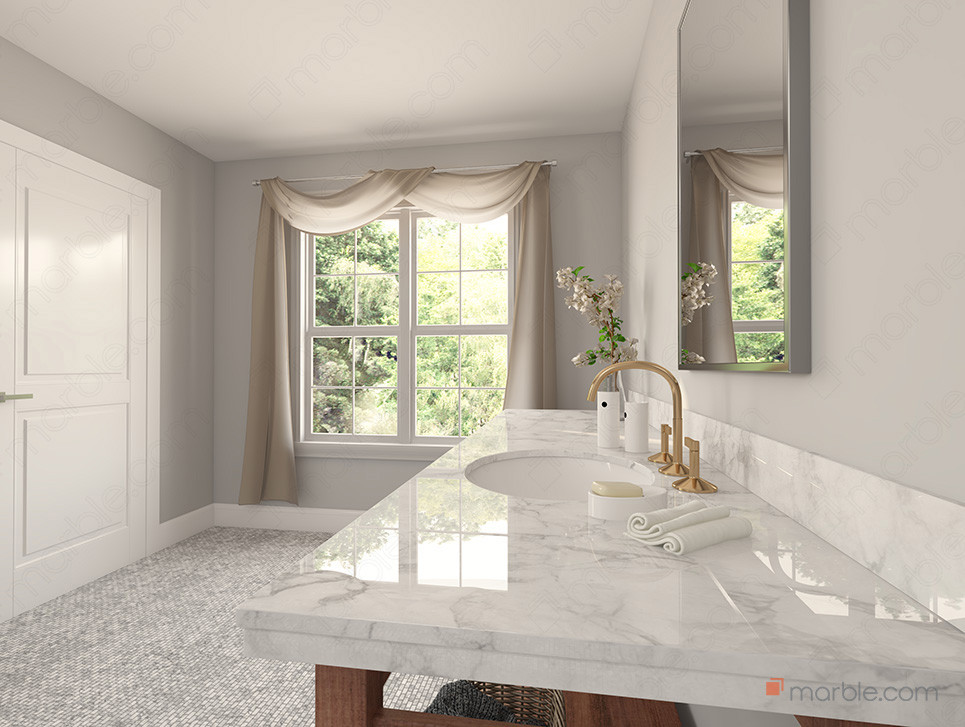
Is grey quartz more expensive than other countertop materials?
Grey quartz countertops can be pricier than some other options like laminate or tile, but they offer excellent value for money due to their durability and low maintenance. While quartz is typically more affordable than high-end natural stones like marble, the cost can vary depending on the design and brand. In the long run, quartz’s longevity makes it a worthwhile investment, as you won’t need to worry about frequent repairs or replacements.
Can grey quartz countertops stain easily?
Quartz is highly stain-resistant, which is one of its key benefits. The non-porous surface means that liquids and substances like makeup or soap won’t seep into the material, unlike natural stones like granite or marble. However, while it’s resistant to most common bathroom spills, it’s still advisable to clean up any messes promptly to maintain the surface’s appearance over time.
What’s the best way to clean grey quartz countertops?
Cleaning grey quartz countertops is incredibly easy. For everyday cleaning, a simple solution of mild dish soap and water works well. Avoid using abrasive sponges or harsh chemicals like bleach or ammonia, as these can dull the surface over time. A microfiber cloth is ideal for wiping down the surface, leaving it shiny without scratching it. Quartz doesn’t require any sealing or special treatments, making it a very low-maintenance option.
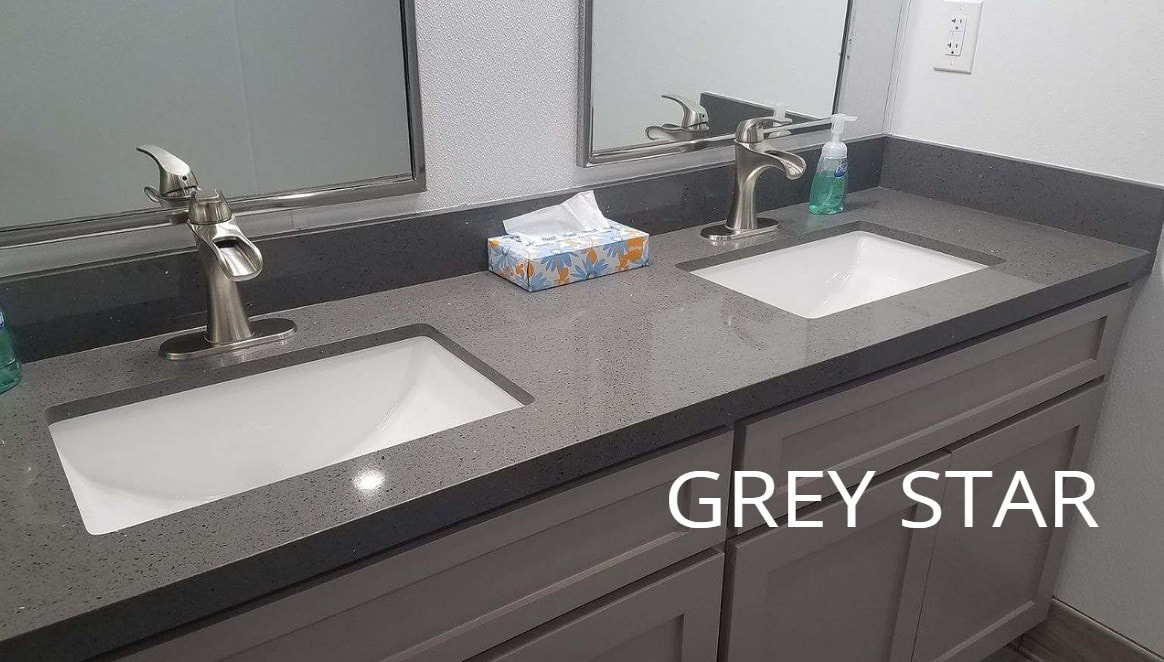
Will grey quartz countertops go out of style?
Grey quartz countertops have a timeless appeal thanks to their neutral color, which pairs well with a variety of design trends. While trends in bathroom decor may evolve, grey remains a versatile shade that complements both modern and traditional styles. Its adaptability means that even if you change other elements in your bathroom, the grey quartz will continue to match seamlessly with new design choices.
How does quartz compare to granite in terms of durability?
Both quartz and granite are highly durable materials, but quartz tends to be more resistant to scratches, stains, and moisture because of its non-porous nature. Granite, being a natural stone, requires periodic sealing to prevent staining, whereas quartz doesn’t. This makes quartz a better choice for low-maintenance homeowners, especially in a moisture-heavy environment like a bathroom.
Can I install grey quartz countertops myself?
While some homeowners may be tempted to take on quartz countertop installation as a DIY project, it’s generally recommended to hire a professional. Quartz is heavy and requires precise measurements and cuts, especially around sinks and other fixtures. A professional installer ensures that seams are virtually invisible and that the countertop fits perfectly, reducing the risk of future issues.
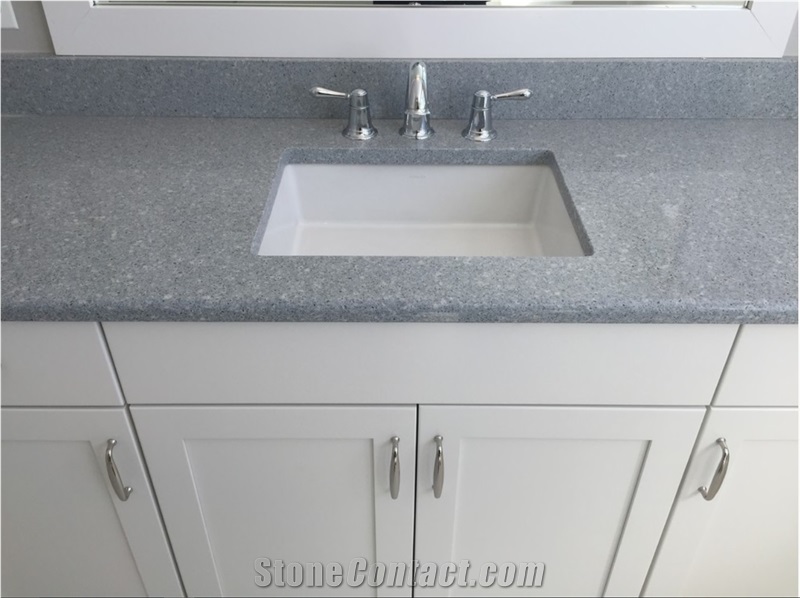
Grey Quartz Bathroom Countertop with Eased Edge

Related articles: